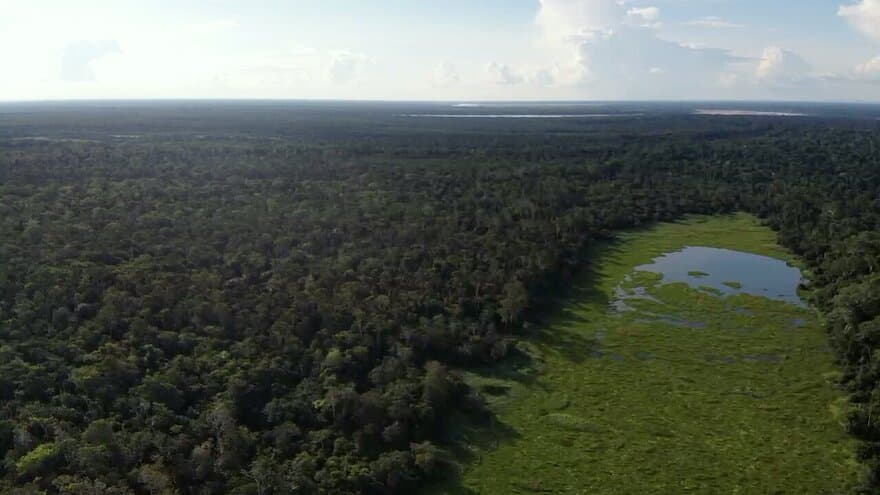Tropisk avskoging er et globalt miljø- og utviklingsproblem. Skogen er viktig for å nå klimamålene. Julia Del Carmen Naime Sanchez Henkels har i sin avhandling sammenliknet data fra Brasil, Indonesia og Peru for å finne ut hvordan man best kan redusere avskogingen.
Tropical deforestation is a global environmental and development problem. Identifying policies that effectively reduce deforestation while improving rural livelihoods is essential to meet our climate and sustainable development goals. The thesis has two main objectives: first, to evaluate the potential of collective Payments for Ecosystem Services (PES) to deliver on conservation and development outcomes under different contexts, and second, to improve our understanding of the causes of deforestation at the national level.
Paper I and II investigate the central question of how to solve the free rider problem of collective PES, using data from a framed field experiment in Brazil, Indonesia and Peru. They examine three strategies to mitigate the free-rider problem: (i) increase in public monitoring of individual actions, (ii) peer-to-peer, community sanctions, and (iii) external, government sanctions. Overall, public monitoring and both types of sanctions increase policy effectiveness. Government sanctions are the most effective to reduce deforestation; community or peer-to-peer sanctions also reduce deforestation but can create trade-offs in terms of loss of local income. There are also important cross-country differences in policy impact. Increased public monitoring does not improve the performance of collective PES in Brazil, while in Indonesia peer-to-peer sanctions are much more frequent. In Indonesia, the existence of inequality in wealth reduces the performance of collective PES, while it has negligeable impacts in Peru and Brazil. In general, individuals who contribute more to conservation outcomes are also the ones who contribute more to the enforcement of conservation norms by sanctioning free-riders.
Paper III presents a household-level impact evaluation of two collective PES schemes in Ucayali, Peru. The first is a local conservation project led by an NGO while the second is the Peruvian’s government National Forest Conservation Program (NFCP). The paper examines land use, income, and wellbeing outcomes. The projects have not improved local incomes because of a slow and delayed implementation. The delayed and slow implementation have not, in turn, negatively affected forest or conservation outcomes. The study brings forward the importance of considering households’ subjective evaluations to identify possible ‘intangible’ wellbeing impacts of conservation projects. Taken together, the results of Paper I, II and III point to the importance of having good forest monitoring to improve conservation, development, and wellbeing outcomes of collective PES.
Paper IV addresses the second objective of the thesis by examining how dual economy growth models can help understand patterns of deforestation across countries. The paper develops a theoretical framework to disentangle the immediate drivers of deforestation from the indirect drivers. The results are consistent with economic predictions: competing land use value between forest and agriculture are a major immediate driver of deforestation. There is suggestive evidence that openness to trade can, indirectly, reduce deforestation levels by decreasing the relative return of agricultural land.
